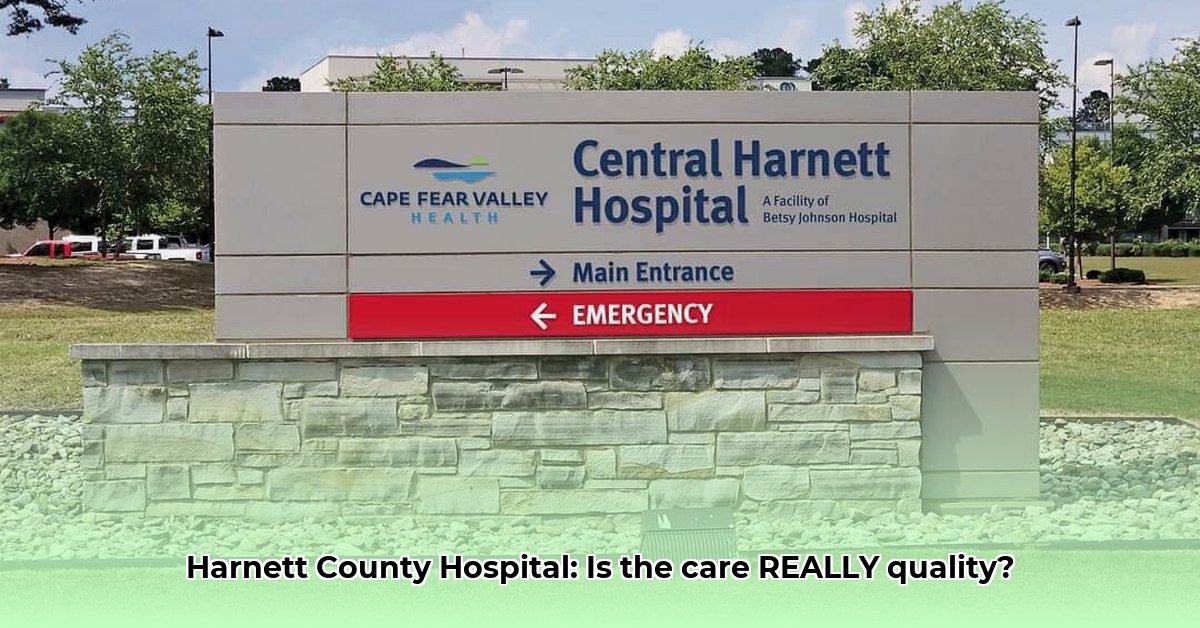
Harnett County Hospital, located in Lillington, North Carolina, plays a crucial role in providing healthcare access to residents of Harnett County and surrounding areas. This informational article, structured as a case study, examines the hospital's contributions, challenges, and future outlook, focusing on its impact on the community and the broader landscape of rural healthcare. For more information, visit the hospital website.
Improved Access and Services
Before the hospital's opening in 2013, residents of central and western Harnett County, including those in Fuquay-Varina, faced significant travel burdens to receive medical care. CFVCH significantly reduced these barriers, offering a range of services closer to home. This improved access to care addresses a critical need in the region.
The hospital provides a comprehensive suite of services, extending beyond emergency care to include outpatient services such as infusions, nutritional guidance, rehabilitation, wellness programs, and advanced wound care. This integrated approach fosters holistic patient well-being and contributes to the overall health of the community. The hospital's commitment to quality is validated by its Joint Commission accreditation and state licensure, demonstrating adherence to rigorous standards of patient safety and care. Even seemingly small details, like providing free parking, reflect a focus on patient convenience and a positive patient experience.
Challenges and Limitations
While CFVCH provides vital services, challenges inherent to rural healthcare significantly impact its operations. The lack of readily available online information about the hospital's specific services and capabilities hinders a comprehensive assessment of its strengths and weaknesses. This limits transparency and presents a hurdle for potential patients seeking information. This contrasts with better-resourced urban hospitals which often have much more detail available online.
Rural hospitals face unique and significant challenges:
- Physician Recruitment and Retention: Attracting and retaining qualified medical professionals in rural areas is a persistent struggle, often due to factors such as lower salaries and limited professional development opportunities compared to urban centers.
- Financial Sustainability: Rural hospitals frequently operate with tighter budgets and face challenges securing adequate funding to maintain facilities, acquire advanced technology, and offer a full scope of services.
- Technological Adaptation: Keeping pace with technological advancements in healthcare is costly and demands significant investment for equipment, infrastructure, and staff training. This is particularly challenging for rural hospitals often operating on decreased revenue.
The following table further highlights the potential risks faced by CFVCH:
Risk Assessment Matrix for Harnett County Hospital
| Risk Factor | Likelihood of Occurrence | Severity of Impact | Mitigation Strategies |
|---|---|---|---|
| Physician Recruitment/Retention | Moderate | High | Competitive compensation & benefits; professional development programs; recruitment incentives. |
| Funding Limitations | Moderate | High | Diversified funding strategies (grants, subsidies, partnerships); cost-efficiency measures. |
| Technological Adaptation | Moderate | Medium | Phased technology upgrades; strategic partnerships with technology providers; staff training. |
| Cybersecurity Threats | Low | High | Robust security measures; regular security audits; staff cybersecurity training. |
| Negative Patient Feedback | Low | Medium | Proactive patient feedback mechanisms; swift response to concerns; continuous quality improvement. |
Community Integration and Future Prospects
CFVCH actively engages with the Harnett County community through initiatives such as employing local staff and fostering partnerships with community organizations. This local focus cultivates trust and strengthens the hospital's connection to the population it serves.
The following table outlines short-term and long-term goals for various stakeholders:
Actionable Steps: A Roadmap for Success
| Stakeholder | Short-Term Goals (Next Year) | Long-Term Goals (Next 3-5 Years) |
|---|---|---|
| Hospital Management | Enhance online information accessibility; improve data transparency. | Expand service offerings; integrate telehealth; develop strategic partnerships. |
| Community Residents | Utilize hospital services; provide constructive feedback. | Advocate for continued support; participate in local health initiatives. |
| Local Government | Optimize funding allocation; strengthen medical workforce development. | Invest in broadband infrastructure; facilitate inter-provider collaboration. |
| Private Investors | Assess investment opportunities; explore potential partnerships. | Support expansion and innovation through capital investment. |
Conclusion
Harnett County Hospital is a vital asset providing essential healthcare services to the community. While it faces challenges common to rural hospitals, its commitment to quality, community engagement, and proactive planning position it for future success. Continued support from local, state, and federal entities will be crucial for securing the hospital's long-term stability and ensuring access to quality healthcare for the residents of Harnett County. Addressing the identified risks and implementing the proposed strategies will be vital to achieving these goals.